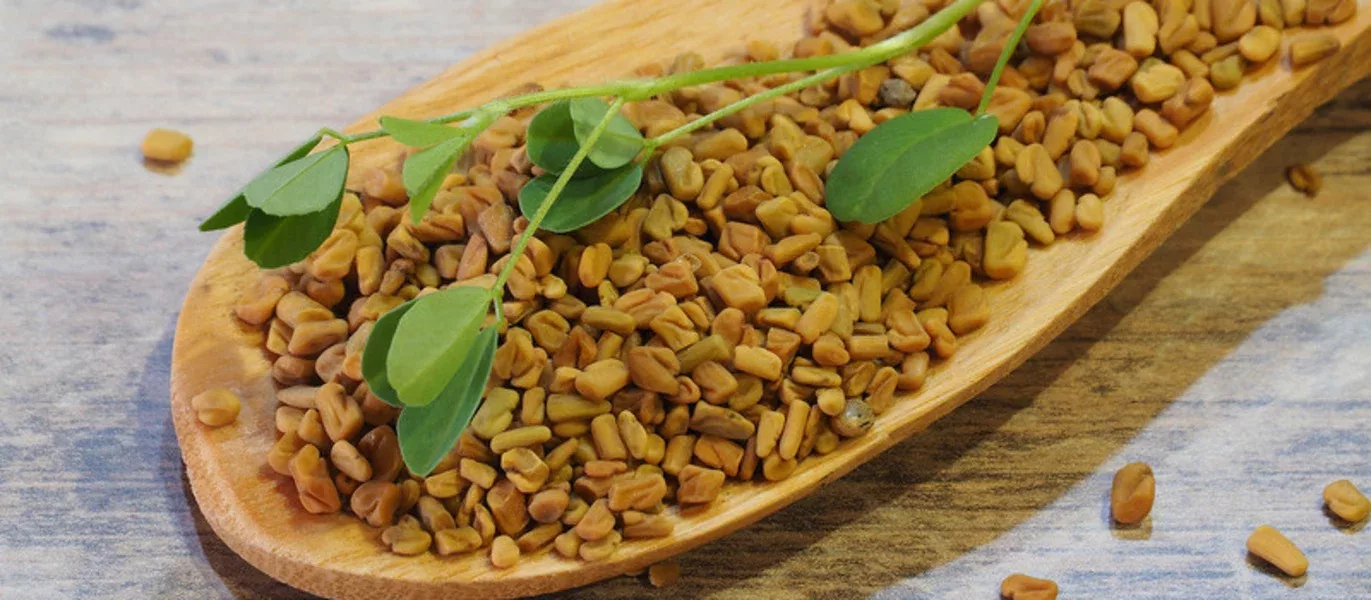
Benefits of Fenugreek
In this article
What is fenugreek?
Fenugreek (Trigonella foenum-graecum), is a short-living annual medicinal plant belonging to the Fabaceae family (pea family) and is used extensively in various parts of the world as a herb, food, spice, and traditional medicine.
The history of fenugreek as a medicine
Fenugreek was used in ancient Egypt. The ancient Greek Dioscorides, who is considered the father of pharmacy, used fenugreek in a wide variety of issues.
Fenugreek has been used traditionally in Western herbal medicine to soothe irritation of tissues, relieve loss of appetite and to support healthy breast milk production.
The active constituents of fenugreek
Fenugreek seeds contain forty-five to sixty per cent carbohydrates, mainly as a mucilage (gel-like substance). When the mucilage mixes with water, its gel-like consistency soothes irritated tissues.
Fenugreek also contains twenty to sixty per cent proteins and is high in the amino acids lysine and tryptophan. Fenugreek also contains vitamin A, C and flavonoids.
Medicinal actions of fenugreek
Fenugreek is used in traditional Western herbal medicine to:
- Support healthy breast milk production.
- Soothe irritated tissues.
- Support a healthy appetite.
- Relieve symptoms of indigestion.
Fenugreek and supplementation
Fenugreek seeds can be easily added to food and are a source of soluble and insoluble fibre. Fenugreek supplements are also available to support digestive health and support healthy breast milk production.
Look for fenugreek in the Nature’s Own™ range as a single ingredient or in combination with other herbal extracts.
Related Articles

Effervescent Benefits
Effervescent supplements are packed with goodness, readily available to the body, and delicious. By dissolving quickly in water, effervescent tablets are easy to use and the bubbly mix means they’re more enjoyable to take. Read on for more information about all the ways that adding effervescence vit

What is indigestion?
Indigestion — also known as dyspepsia — is mild discomfort felt in the upper belly or abdomen. It often occurs during or right after eating.